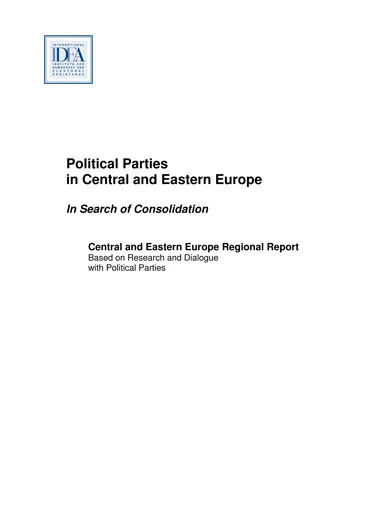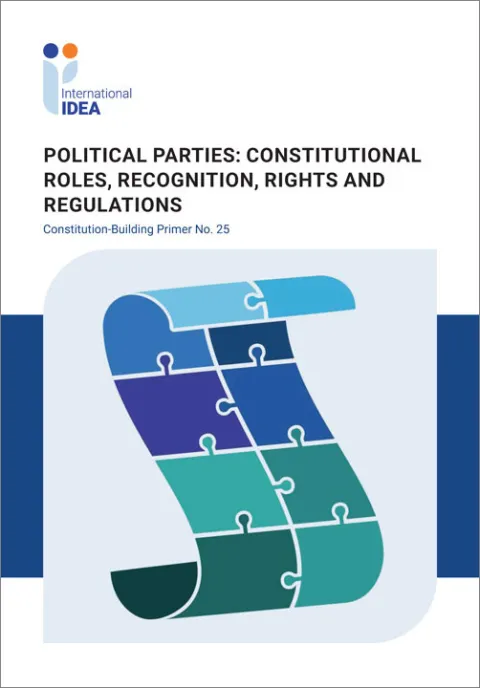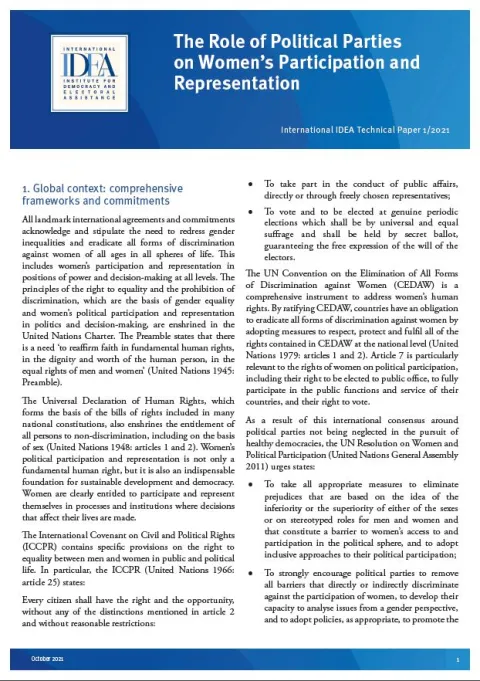Political Parties in Central and Eastern Europe: In Search of Consolidation
After the fall of the Berlin Wall in 1989 political parties in Central and Eastern Europe were perceived negatively by the public. Indeed, mobilization against them even became a source of legitimacy for new civil movements.
In 1990, the Civic Forum, led by Václav Havel, won the first free election in Czechoslovakia using the slogan: ‘Parties are for party members, the Civic Forum is for everyone’. In Poland, meanwhile, 27 parties entered parliament after the first democratic elections, providing little hope of producing a stable government.
Written by four researchers from the Institute for Comparative Research at Masaryk University in Brno in the Czech Republic, this report analyses the party systems in Central and Eastern Europe, focusing on external regulation, internal functioning, women’s participation and the impact of different electoral systems on the development of the party system.
The report contains detailed information about the state of political parties in 18 countries: Albania, Armenia, Bosnia and Herzegovina, Bulgaria, Croatia, Czech Republic, Estonia, Georgia, Hungary, Latvia, Lithuania, Macedonia, Montenegro, Poland, Romania, Serbia, Slovakia and Slovenia.
Details
Contents
About the project and methodology
Regional analysis: party system
External regulations
Internal functioning
Women’s political participation
Region-specific issues
Country profiles
Conclusions and way forward
Appendices
List of parties/coalitions and abbreviations
Non-party abbreviations
Select bibliography
Give us feedback
Do you have a question or feedback about this publication? Leave us your feedback, and we’ll get back to you
Send feedbackPolitical Parties in Central and Eastern Europe: In Search of Consolidation

| Total views | 4756 |
|---|---|
| Downloads | 35 |
| Rating |
Give us feedback
Do you have a question or feedback about this publication? Leave us your feedback, and we’ll get back to you
Send feedback










